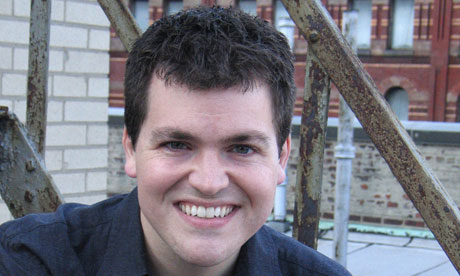
A rash of optimistic books is being published in the US, as authors do their best to lift the gloom created by a news agenda dominated by world recession, wars, floods and famine.
The latest to appear is The Secret Peace by Jesse Richards, with its controversial theory on the modern human condition: the world is a nice place and getting better. When the Observer met Richards last week, he remained steadfast in his lonely insistence on a state of optimism when it comes to the human race's progress. "It is easy to relate to a short-term disaster. It is harder to understand larger, long-term statistics. But they show that we really are better off, and getting better and better," he said.
Richards's book is full of ideas and numbers that sustain his thesis. Global life expectancy, for example, is now 68 years and rising. Mobile phones – once the preserve of wealthy yuppies – are now owned by 40% of Africans, connecting an entire continent to the rest of the world. Despite the world's conflicts, the number of people killed in wars has been dropping for decades.
Only 70 or so years ago – the span of a single lifetime – the world was still dominated by huge colonial empires. Now independent countries have emerged, with more and more of them becoming democracies. Infant mortality rates are down and still falling. "We are progressing ethically, we are progressing morally and just becoming a better species," Richards said.
Another example of a recently published book with an optimistic message is The Better Angels of Our Nature by Harvard psychologist Steven Pinker, which examines global statistics on violence, both criminal and that which springs from warfare. The pattern is clear, Pinker argues. When it comes to war deaths, rape, murder and domestic violence, all the trend lines are headed downwards to a more peaceful future.
In another book, Winning The War On War, American University professor Joshua Goldstein argues that global conflicts are causing fewer and fewer deaths. A third recent book on war, The Human Security Report, shows average annual battle deaths have dropped from 10,000 per conflict in the 1950s to less than 1,000 now.
But it is not just declining war and violence that is shaping our modern world. Writer Charles Kenny's book, Getting Better, was published this summer and examined positive trends in global development. Kenny argued that the worldwide effort to get hundreds of millions of people out of poverty is working. Statistics on health and education are simply improving worldwide, no matter what individual situations or countries may buck the wider trend.
Given the wealth of evidence, why then does the world so often feel like it is going to hell in a hand-basket? Richards believes that the media and the human instinct to respond to a crisis are what is at fault.
Newspapers and TV shows concentrate on telling people bad news because that is what their consumers seem to want. "I used to think journalists were not doing their jobs because they did not tell these positive stories," Richards said. "But now I think that the media is doing its job very well. But their job is to report bad news." After all, he argues, human beings appear hard-wired to worry and fret over potential threats as a means of evolutionary survival. "That's in our nature. It pays to be nervous," he said.
Richards does admit that there are some areas where the relentless path of human progress has hit more murky ground. On the environment, the long-term positive trends that mark much of the rest of human experience appear reversed in the face of global warming, deforestation and environmental degradation, especially in the developing world.
But Richards insists humans will solve the problem, pointing to trends in the developed world – such as solar power, replanting trees and cleaner seas and rivers – that he believes will eventually spread across the planet. Just look at the environmental problems of industrial Britain in the 19th and early 20th centuries and compare them to now, he says. "We constantly underestimate the ability of our future selves to solve problems," he said.
But faced with the onslaught of bad news headlines, Richards admits it is unlikely the positive message he and others are putting out will transform the mood and outlook of a world that is terrified by the prospect of a double dip back into recession.
"The recession makes it really hard. But I don't think it alters the long-term picture of human progress at all. Even the Great Depression didn't do that, and this current situation is nowhere near as bad as that," he said.

